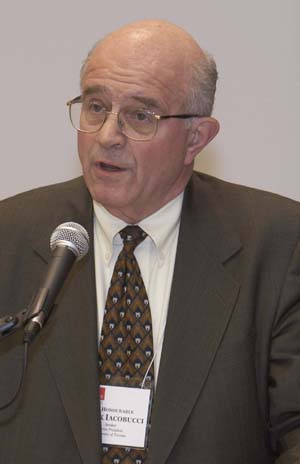In a case demonstrating the challenges of addressing aboriginal representation on Ontario juries, the Ontario Superior Court has rejected an application to have a sheriff found guilty of fraud, partiality or wilful misconduct over the lack of First Nations members on the panel.

In
R. v. Kennedy, Justice Andrew Goodman ruled on the application in a case involving a First Nations member charged with sexual interference and sexual assault. While Gregory Kennedy eventually abandoned the application over the lack of aboriginals on the jury after conceding he couldn’t meet the threshold for challenging the array in Form 40, Goodman went ahead and ruled on the issue anyway given the issue’s “significant import to the administration of justice.”
Ontario has been considering the issue of aboriginal issues on jury panels in recent years given a number of high-profile cases that indicated the provincial government’s lax approach to the matter. Earlier this year, former Supreme Court justice Frank Iacobucci wrote a report that noted the justice system as it relates to First Nations was in crisis. In its ruling on the issue this year in
R. v. Kokopenace, the Ontario Court of Appeal highlighted the government’s duty to make reasonable efforts to include First Nations members on jury rolls.
But in
Kennedy, it’s fairly clear officials did just that. In documenting those efforts in this case, Goodman noted provincial officials responded proactively to the fact the federal government had stopped providing band lists as of 2000. Sheila Bristo, acting director of the corporate planning branch at the Ministry of the Attorney General, had managers at each Superior Court location contact local band chiefs in order to get an updated list of potential jurors. Only a few bands responded, she told the court.
In the London, Ont., area where the
Kennedy matter was taking place, officials sent letters to the band chiefs of the three local reserves: the Oneida of the Thames, the Muncee-Delaware, and the Chippewas of the Thames. There was no response.
Bristo eventually had the sheriff contact the chiefs directly so a senior manager could possibly drive out to the reserves to discuss the issue. The letters all came back as undeliverable. The sheriff was never able to reach any of the chiefs personally, although the chief of the Munsee-Delaware First Nation at one point left a message saying he had made a request to the band council, without success, for a band eligibility list. The band’s position was that no list would be forthcoming, according to the sheriff’s testimony. The Chippewas of the Thames later responded that it, too, would decline to share a band list, while the Oneida of the Thames never responded.
In the end, the sheriff had to use the outdated list from the federal government dating back to 2000. Of 231 jury notices sent out to the various reserves in the area, 229 came back undeliverable. The other two came back indicating the people had died.
In the end, Goodman distinguished
Kennedy from
Kokopenace, a case that featured a number of indications on the government’s part that it hadn’t been doing that much to include aboriginals on jury rolls. In that earlier case, for example, there was evidence of “incompetent” work by the employee responsible, including the fact there were “little to no efforts made” to get updated on-reserve lists, according to Goodman’s review of
Kokopenace.
In the end, Goodman ruled against
Kennedy’s application. “I must take into account the necessity for cultural sensitivity,” he wrote.
“However, when band chiefs and councils directly or indirectly decline to provide band lists to the sheriff, for whatever valid reason, and the leaders and decision-makers of these respective communities decline to meet or discuss these issues with representatives of the ministry or the sheriff, I have no evidence before me to determine what other efforts might be reasonably effective.”

 In R. v. Kennedy, Justice Andrew Goodman ruled on the application in a case involving a First Nations member charged with sexual interference and sexual assault. While Gregory Kennedy eventually abandoned the application over the lack of aboriginals on the jury after conceding he couldn’t meet the threshold for challenging the array in Form 40, Goodman went ahead and ruled on the issue anyway given the issue’s “significant import to the administration of justice.”
In R. v. Kennedy, Justice Andrew Goodman ruled on the application in a case involving a First Nations member charged with sexual interference and sexual assault. While Gregory Kennedy eventually abandoned the application over the lack of aboriginals on the jury after conceding he couldn’t meet the threshold for challenging the array in Form 40, Goodman went ahead and ruled on the issue anyway given the issue’s “significant import to the administration of justice.”